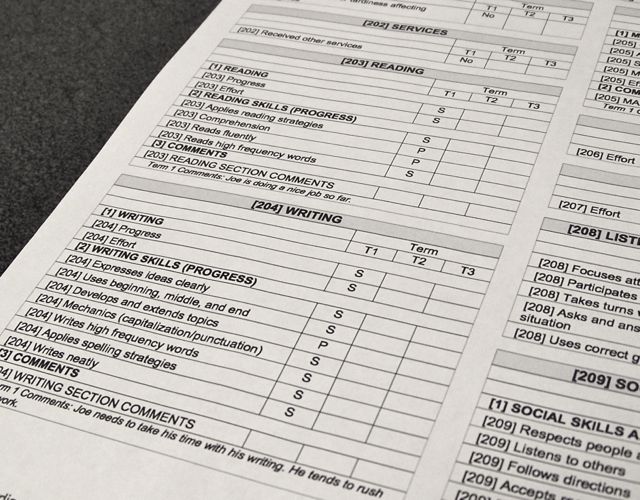
Self-Determination: On the Road to Fostering Independence
March 13, 2014
Keep a Copy of Final Report Cards
March 28, 2014
I recently had the opportunity to attend the Hamilton County Summit on Kindergarten Readiness. John Pepper, Retired Chairman and CEO of The Proctor and Gamble Company opened the Summit with a charge to create communication and collaboration on behalf of early childhood education and school readiness. He has been an advocate of Early Childhood Education on a national level for years, and a force majeure locally.
He energized all in attendance to look around the room and think about local connections and collaborations that could be made to strengthen the cause. I was pumped! With the new Early Childhood initiative at Springer, and all of the expertise we bring to the table regarding the support and remediation of learning challenges, it made perfect sense to extend our hands in the collaborative effort.
Following John Pepper was Kay Geiger, President of PNC Bank of Greater Cincinnati/Northern Kentucky. PNC’s 10-year commitment to school readiness has made an impact on the local community that can be evidenced in many ways. Kudos to PNC, and all who are able to benefit from their vision and hard work. Then, as Kay continued to talk about the current national statistics, I began to feel quite overwhelmed with frustration.
The first two stats stated that even now, 20 percent of U.S. adults can’t read, and that there are U.S. prisons that use 3rd grade reading levels to help them predict the number of jail cells that will be needed in the future.
So, the Ohio Third Grade Guarantee tests students in third grade to make sure they can read at grade level, yet if by third grade they are not achieving that standard, the statistics are not in their favor for academic success. This follows the same ridiculous thought process that says students shouldn’t be tested for a reading disability until third grade. Whether this is a stated or implied guideline, it is what is in place in many public schools currently. Response to Intervention (RTI) allows this to occur by moving the affected child ever so slowly through the intervention levels.
To me, this is a major call to action for parents – get my child the teaching methods that support reading development when deficits are seen in pre-school at the phonological level, or other “red flags” exist. Get help during the kindergarten year, when the child is not making the sound/symbol connections, is failing to develop sight word vocabulary, and is still having difficulty making or hearing rhyming words, etc.

It is Springer’s desire, in making Early Childhood Literacy an initiative, that through parent programs, professional development at the preschool/kindergarten level, and by providing a rich, appropriate summer learning experience for children who are struggling, we can make a difference in the effort to truly provide what is needed for this very critical population of students.
Blogger Barbara Hunter, MEd, shares her expertise in the use of technology to support learning. If you have questions, please contact Barbara at .



